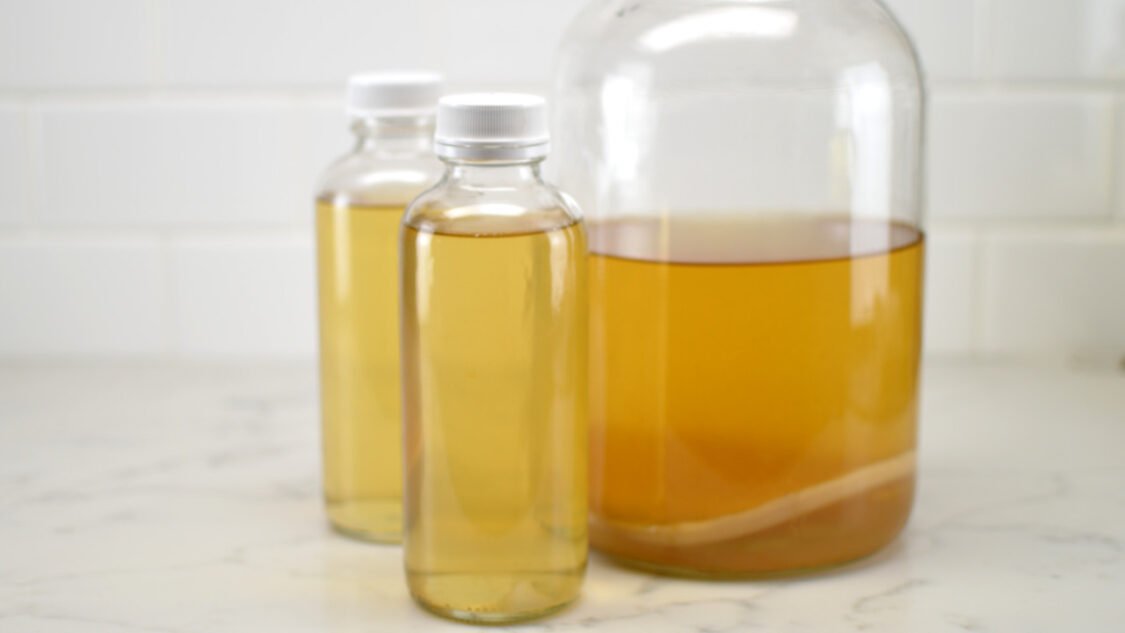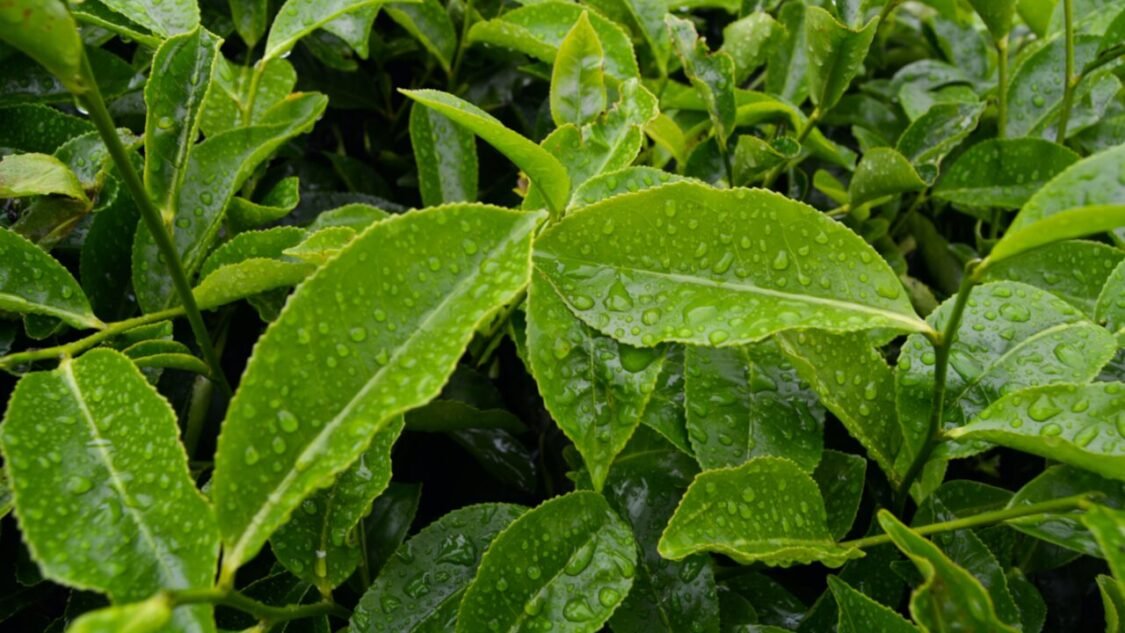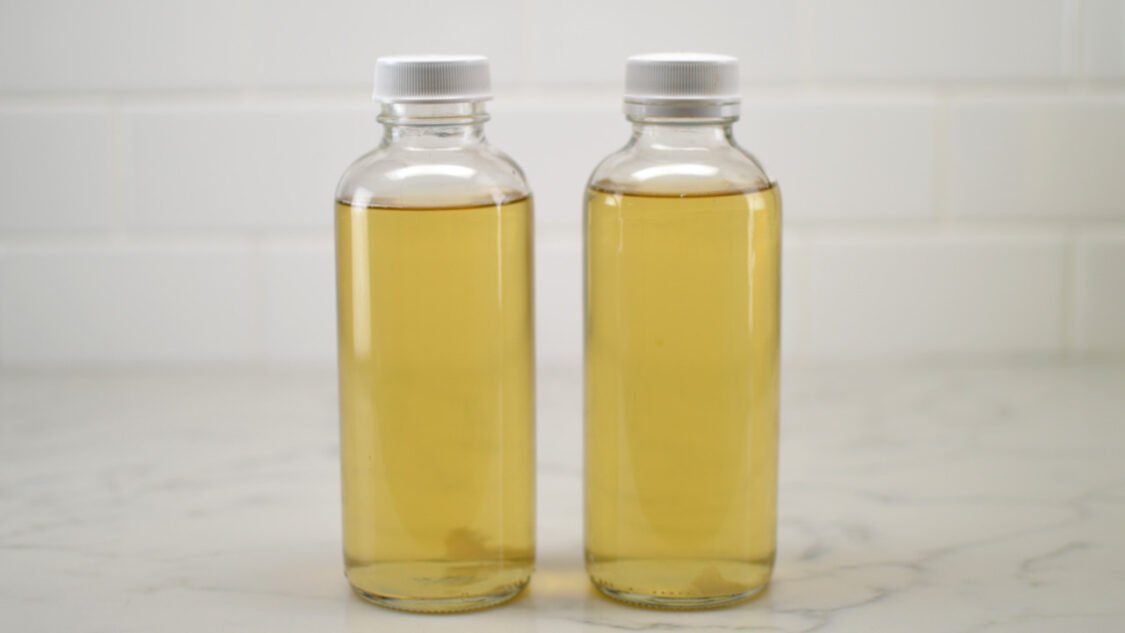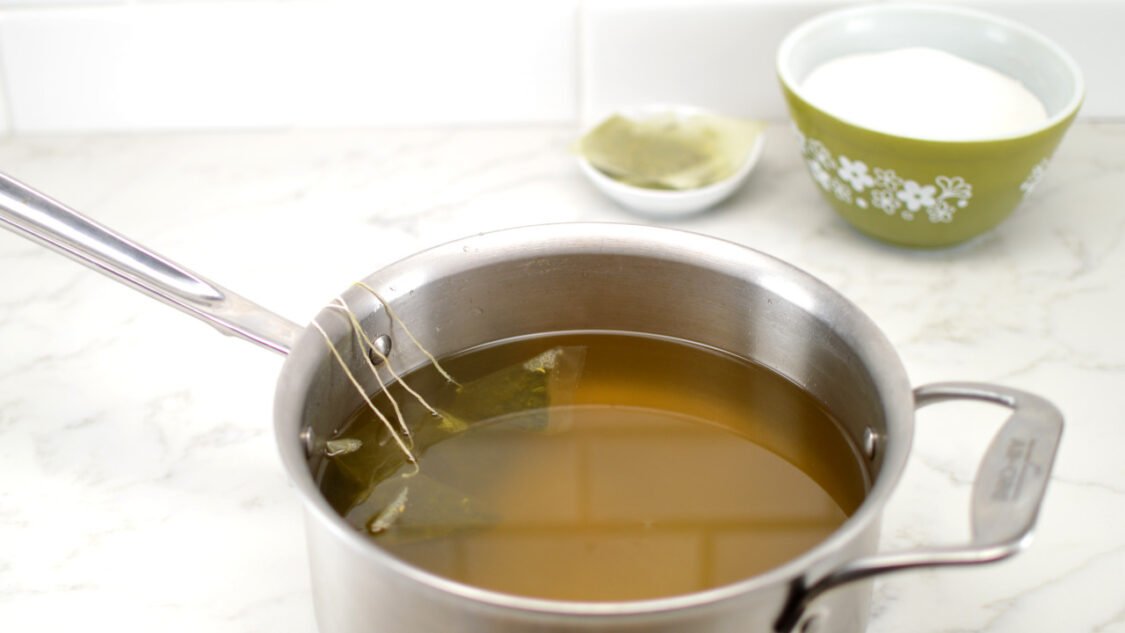Green Tea Kombucha
How green tea kombucha differs from black tea, green tea varieties and how to use it to make green tea kombucha.

Kombucha is most commonly made with black tea but you can also make great kombucha with green tea! You can make 100% green tea kombucha or include a portion of black tea.
What is Green Tea?
Green tea and black tea are both types of tea that come from the Camellia sinensis plant. The differences in the way they are processed results in differences in their taste, appearance, and health benefits.
Black tea leaves are fully fermented and oxidized, which gives the tea its dark color and stronger, bolder flavor. Black tea contains fewer antioxidants than green tea, but is still a rich source of polyphenols, which have been linked to various health benefits.
Health Benefits of Green Tea
Green tea has been consumed for centuries in many cultures, and has been touted for its potential health benefits. Some of the most notable health benefits of green tea include:
Antioxidants: Green tea is a rich source of antioxidants, such as catechins and polyphenols, which help protect cells from damage caused by free radicals and may reduce inflammation.
Heart health: Some studies have suggested that drinking green tea may help improve cardiovascular health by reducing the risk of heart disease and stroke.
Cancer prevention: Some research has suggested that the antioxidants in green tea may help prevent certain types of cancer, such as breast, ovarian, and prostate cancer.
Brain function: Green tea contains caffeine and theanine, both of which have been shown to improve brain function, alertness, and focus.
Weight loss: Green tea has been shown to boost metabolism and increase fat oxidation, which can help with weight loss.
Type 2 diabetes: Some studies have found that green tea consumption may help improve insulin sensitivity and lower the risk of type 2 diabetes.
While the evidence for these benefits is promising, more research is needed to fully understand the potential health effects of green tea. Additionally, it’s important to keep in mind that the health benefits of green tea can be influenced by a number of factors, such as a person’s overall diet and lifestyle.
Green Tea Kombucha and Caffiene
| Type of Tea | Caffeine Content (MG/G) |
| Green tea | 35 mg/g |
| Black tea | 29 mg/g |
- Green tea leaves are first steamed then and then dried
- Black tea leavers are processed using oxidation (exposure to oxygen)

Types of Green Tea
Green tea is one of the most popular teas in the world, and there are many different varieties that are grown and produced throughout Asia, each with its own unique flavor and aroma characteristics.
The flavor and aroma of green tea varies depending on factors such as the growing conditions, processing methods, and brewing techniques used.
Some of the most common and well-known green teas include:
Dragonwell (Longjing) – Dragonwell is a premium green tea from China that is characterized by its nutty and slightly toasty flavor, with hints of chestnut and a sweet, buttery aroma.
Sencha – Sencha is a Japanese green tea that is known for its vegetal and slightly grassy flavor, with a clean and crisp aroma.
Matcha – Matcha is a finely ground green tea powder that is traditionally used in Japanese tea ceremonies. It has a bright green color and a sweet, vegetal flavor with a slightly bitter aftertaste.
Gunpowder – Gunpowder is a Chinese green tea that is named after the shape of the rolled tea leaves, which resemble gunpowder pellets. It has a bold and robust flavor, with notes of smoky peat and a slightly bitter aftertaste.
Gyokuro – Gyokuro is a Japanese green tea that is grown under shade, which gives it a unique flavor profile and a delicate aroma. It has a mild and slightly sweet flavor with notes of seaweed and a smooth and silky mouthfeel.
Bi Luo Chun (Pi Lo Chun) – Bi Luo Chun is a Chinese green tea that is known for its delicate and sweet flavor, with notes of spring flowers and a light, fruity aroma.
Huangshan Maofeng – Huangshan Maofeng is a Chinese green tea that is grown in the Anhui province and is characterized by its delicate and sweet flavor, with hints of honey and a light, floral aroma.
Green Tea Kombucha
You can make kombucha with only green tea! Kombucha is a fermented tea drink that is typically made using black tea, but using green tea is also popular.
Green tea kombucha is a bit different from traditional black tea kombucha in terms of flavor and color. The green tea gives the kombucha a lighter, brighter, and slightly sweeter taste compared to black tea, and it can also produce a lighter-colored kombucha with a more subtle flavor that some say is lightly herbaceous and floral.

How to Make Green Tea Kombucha
Making kombucha with green tea is similar to making it with black tea.
You simply steep green tea leaves in boiling water with sugar, let it cool to room temperature, add the kombucha culture and SCOBY, and let it ferment for several days.
After fermentation, you can drink it as-is or flavor it with your favorite fruit, herbs or spices, and enjoy!
For more information check out how to make sweet tea for kombucha. To make green tea kombucha using these instructions just replace the black tea with green tea in the same quantity.

Best Flavors for Green Tea Kombucha
Green tea kombucha has a lighter, brighter, and sweeter taste than other kombucha varieties. Here are some flavors that can complement the flavor profile of green tea kombucha:
Citrus flavors: The tanginess of citrus flavors such as lemon, lime, and orange complements the sweetness and lightness of green tea kombucha. You can add slices of citrus fruits or a splash of citrus juice to your green tea kombucha.
Berry flavors: Adding fresh or frozen berries such as strawberries, raspberries, and blueberries can enhance the sweetness and fruitiness of green tea kombucha.
Floral flavors: Adding floral flavors such as rose, lavender, and hibiscus can give your green tea kombucha a delicate and refreshing taste. These flavors pair well with the lightness and brightness of green tea.
Mint: Adding fresh mint leaves to your green tea kombucha can give it a refreshing and cooling taste that complements its sweetness.
Ginger: Ginger has a spicy and slightly sweet taste that can balance the sweetness of green tea kombucha while adding a pleasant warmth to the drink.
Ultimately, the best flavors to add to your green tea kombucha will depend on your personal taste preferences. Feel free to experiment with different flavor combinations until you find the ones you enjoy the most.
My Favorite Green Tea Kombucha Recipes:
- Orange Rosemary Rosehips Kombucha –
- Raspberry Lemonade Kombucha – light, delicate taste with subtle earthy and slightly tart notes that complement the sweetness of the raspberries and tartness of the lemon juice.
- Butterfly Pea Lavender Lemon Kombucha – In addition to the floral and citrus aroma and taste it is an amazing purple color. You have to see it!
- Orange and Lime Kombucha– This makes and excellent base for a green tea kombucha margarita mocktail!
- Pineapple Basil – the green tea kombucha base adds a subtle earthy and slightly tart foundation which complements the sweetness of the pineapple and the freshness of the basil.
Helping you learn to brew kombucha, find inspiration for new kombucha flavors and use kombucha to make kombucha mocktails




